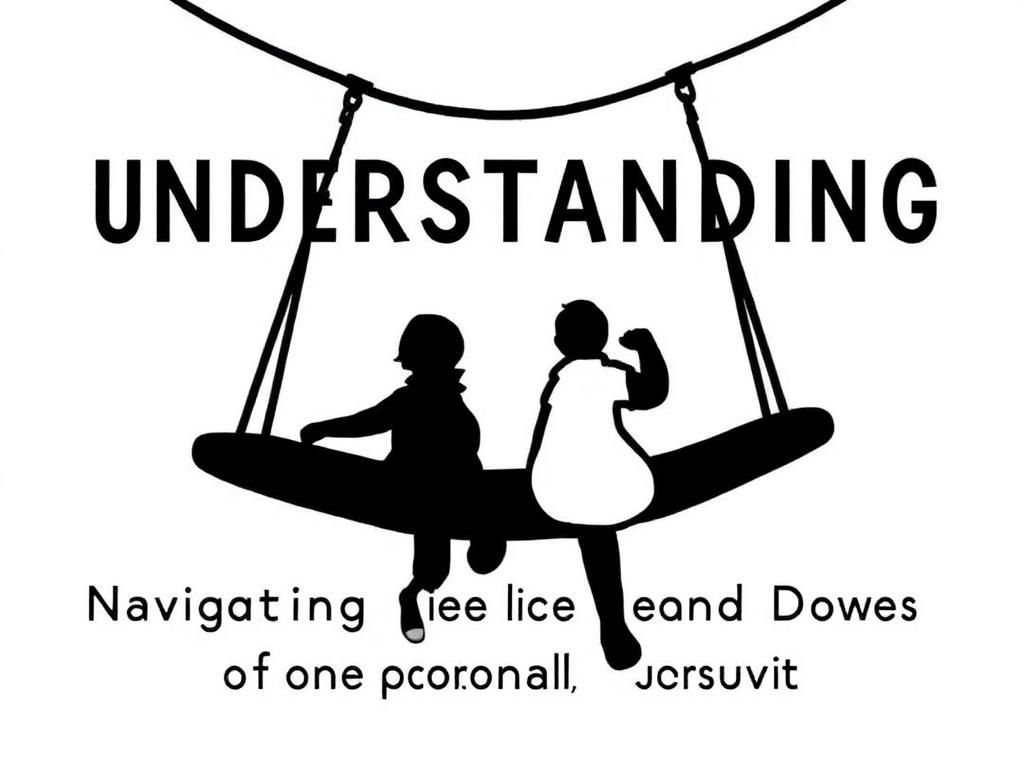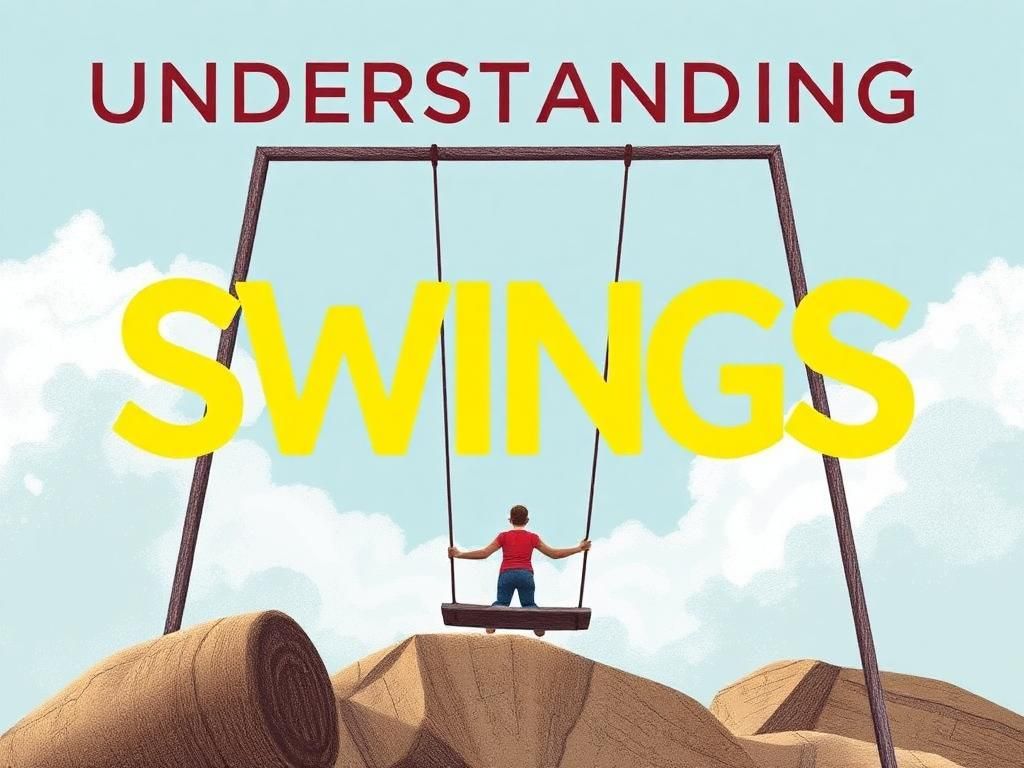Life is a beautiful journey characterized by a series of life swings, encompassing both exhilarating highs and challenging lows. These swings represent the inevitable fluctuations we experience due to various circumstances, ranging from career shifts to personal relationships. Understanding the nature of life swings is crucial in fostering personal development and emotional resilience, allowing us to navigate life’s challenges effectively.
The Nature of Life Swings
Understanding Life’s Ups and Downs
A life swing can be likened to an emotional rollercoaster, where moments of elation may quickly turn into despair. These swings can manifest in different aspects of life, such as experiencing a promotion at work followed by a sudden job loss or a joyful marriage that ends in heartbreak. Recognizing the commonality of these life swings helps normalize feelings related to them and encourages individuals to embrace their unique journeys.
The Psychology Behind Life Swings
Psychological theories, such as the psychology of resilience, examine how human beings respond to change and adversity. Life’s ups and downs compel us to adapt through resilience and effective coping mechanisms. A nuanced understanding of life swings reveals how they are interwoven with our mental health, shaping our emotional landscape.
Phases of Life Swings
The Exciting Peaks
Experiencing peak moments in our lives, like attaining personal goals or celebrating milestones, brings immense joy and fulfillment. These high points are often accompanied by feelings of excitement, pride, and contentment. It’s essential to recognize and celebrate these achievements, no matter how small, as they contribute to our overall well-being. Key to enjoying these peaks is fostering gratitude and mindfulness.
The Challenging Valleys
On the contrary, low points in our lives present formidable challenges characterized by feelings of sadness, disappointment, or grief. These valleys, while difficult, can serve as powerful catalysts for growth. Strategies such as journaling, seeking professional help, or practicing self-compassion can greatly aid in navigating through tough times, ultimately leading to a deeper understanding of oneself and a renewed sense of purpose.
The Impact of Life Swings on Personal Growth
Learning from Ups and Downs
Reflecting on past life swings provides invaluable information about our behaviors and choices. These reflective practices foster self-awareness and enable us to recognize patterns in our responses to similar scenarios. Learning from these experiences contributes significantly to personal growth, allowing us to approach future challenges with more wisdom and insight.
Building Resilience Through Life Swings
Resilience is the backbone of successfully navigating life swings. Techniques like mindfulness meditation, establishing supportive relationships, and embracing failure as a learning opportunity can greatly enhance one’s capacity for resilience. Numerous case studies highlight individuals who, after encountering significant life swings, emerged stronger than before, highlighting the importance of a resilient mindset.

Strategies for Managing Life Swings
Finding Balance
Maintaining equilibrium amidst the highs and lows of life swings is vital. This balance can be achieved through stable routines, self-care practices, and positive affirmations. Regularly engaging in activities that foster relaxation and joy helps buffer against the impact of unexpected changes.
Embracing Change
A growth mindset is essential when facing inevitable life swings. Understanding that change is a natural and essential part of life can help individuals stay flexible and open. Practicing adaptability by setting realistic goals and accepting new realities can diminish resistance to change.
Seeking Support
Support systems play a pivotal role in managing life swings. Reaching out to friends, family, or mental health professionals fosters a sense of community and belonging that provides comfort during turbulent times. Sharing experiences with others can also lead to valuable insights and encouragement.
Conclusion
Understanding and accepting the inevitability of life swings is crucial to embracing the richness of human experience. By viewing these fluctuations as opportunities for growth and self-discovery, individuals can foster resilience and navigate life’s journey more adeptly.
Additional Resources
- Recommended books on resilience and personal development
- Links to support groups and mental health resources can be found at sites like NAMI.
- Inspirational quotes about resilience and life changes to motivate and uplift you.
Call to Action

We encourage readers to share their own experiences with life swings. How have you navigated your ups and downs? Subscribe for more articles on personal growth and well-being.
| Phase | Emotional State | Strategies |
|---|---|---|
| Exciting Peaks | Joy, Pride | Celebrate Achievements |
| Challenging Valleys | Sadness, Disappointment | Seek Support, Self-Compassion |
| Learning | Reflective | Self-Awareness Practices |
| Building Resilience | Empowered | Mindfulness, Adaptability |
FAQ
What are life swings?
Life swings refer to the natural fluctuations we encounter in our emotional and situational experiences throughout life.
How can I navigate the lows of life swings?
Navigating the low points involves seeking support, practicing self-compassion, and employing coping strategies like mindfulness.
Are life swings common?
Yes, experiencing life swings is a fundamental aspect of the human experience.
What is the role of resilience in life swings?
Resilience helps individuals bounce back from the lows experienced during life swings and promotes endurance and growth.
Can life swings lead to personal growth?
Absolutely! Many individuals report significant personal development after enduring challenging life swings.
How can I support someone going through life swings?
Offer a listening ear, validate their feelings, and encourage them to seek professional help if needed.
What techniques can enhance my resilience?
Practices such as mindfulness, maintaining social connections, and having a positive outlook can help build resilience.
Is it normal to feel lost during life swings?
Feeling lost is a common reaction to life swings, especially during transitions. Self-reflection and support can aid clarity.
How do I celebrate the peaks of life swings?
Take time to acknowledge achievements, be it through journaling, sharing with loved ones, or simply reflecting on personal growth.
What should I do if I can’t handle my life swings?
If feelings become overwhelming, consider reaching out to a mental health professional or support group for help.
